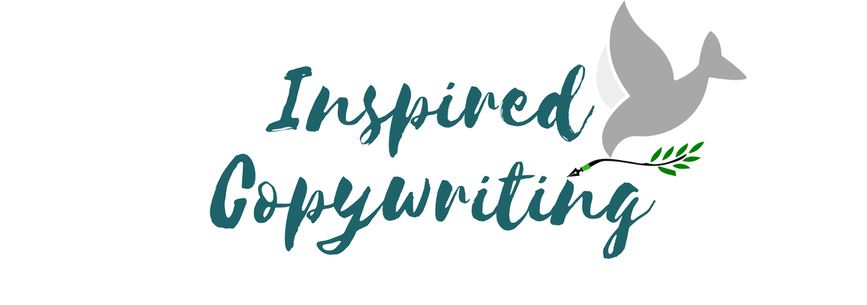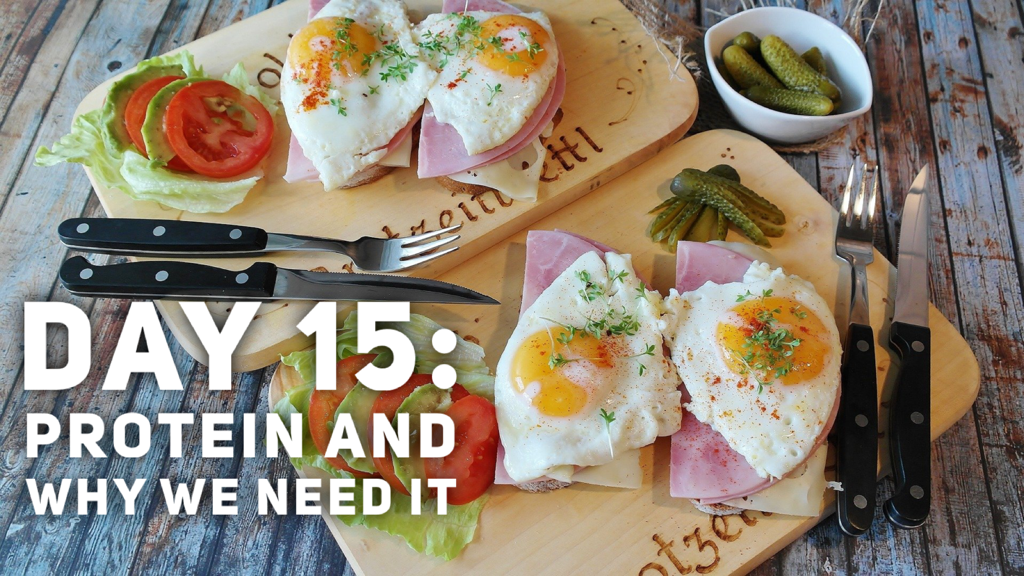Day 15: Protein and Why We Need It
Why do we need protein?
It’s not so much as a source of energy but for muscle, skin, hair, and other tissue-building processes and production of neurotransmitters, hormones, immunoglobulins, and such. When digested and broken down, proteins become amino acids. The body can make most of these amino acids except for nine, which we need to get from our diet.
All meat products and their by-products (eggs, milk, and cheese) can supply these essential amino acids. But for vegetarians, they need to eat a variety of plants foods and plant combination (whole grains + beans) to get all the essential amino acids.
Some plant foods contain the complete essential amino acids. These are quinoa, amaranth, and soybeans. So it’s not true that only meat products can provide complete essential amino acids.
According to the Encyclopedia of Human Nutrition, “Egg protein has a ‘chemical score’ of 100. This is equivalent to the essential amino acid level in a protein food divided by the level found in an ‘ideal’ protein food. The ‘biological value’ of egg is 94. This measures how efficiently a dietary protein is turned into body tissue. But limit your intake to one egg a day because the egg yolk is high in saturated fat.
In the Mediterranean diet, it is highly recommended to eat lean protein and no more than the size of a deck of cards a day. You can also use the palm of your hands to estimate 4 oz, which is the recommended serving size of a meat you can consume each day (take note—not each meal).
Examples of lean proteins are the loin parts of beef and pork. Chicken breast without the skin is considered lean.
For fish, you don’t need it to be lean. The fat in fish is healthy and essential. We’ll cover this topic under fats and what are considered healthy and essential.
Eating nuts is also an excellent way to have protein and good fat. Peanuts, beans, and peas are legumes and are high sources of protein.
Consuming 2 cups a week earns you a point in the Mediterranean diet 9-point scoring system.
What is your primary source of protein?
It’s not so much as a source of energy but for muscle, skin, hair, and other tissue-building processes and production of neurotransmitters, hormones, immunoglobulins, and such. When digested and broken down, proteins become amino acids. The body can make most of these amino acids except for nine, which we need to get from our diet.
All meat products and their by-products (eggs, milk, and cheese) can supply these essential amino acids. But for vegetarians, they need to eat a variety of plants foods and plant combination (whole grains + beans) to get all the essential amino acids.
Some plant foods contain the complete essential amino acids. These are quinoa, amaranth, and soybeans. So it’s not true that only meat products can provide complete essential amino acids.
According to the Encyclopedia of Human Nutrition, “Egg protein has a ‘chemical score’ of 100. This is equivalent to the essential amino acid level in a protein food divided by the level found in an ‘ideal’ protein food. The ‘biological value’ of egg is 94. This measures how efficiently a dietary protein is turned into body tissue. But limit your intake to one egg a day because the egg yolk is high in saturated fat.
In the Mediterranean diet, it is highly recommended to eat lean protein and no more than the size of a deck of cards a day. You can also use the palm of your hands to estimate 4 oz, which is the recommended serving size of a meat you can consume each day (take note—not each meal).
Examples of lean proteins are the loin parts of beef and pork. Chicken breast without the skin is considered lean.
For fish, you don’t need it to be lean. The fat in fish is healthy and essential. We’ll cover this topic under fats and what are considered healthy and essential.
Eating nuts is also an excellent way to have protein and good fat. Peanuts, beans, and peas are legumes and are high sources of protein.
Consuming 2 cups a week earns you a point in the Mediterranean diet 9-point scoring system.
What is your primary source of protein?
PROTEIN CHALLENGE #1
Stick to your portion size (4 oz a day) when eating meat protein and go only for the lean variety (sirloin, 90/10 ground beef, tenderloin, skinless chicken)

